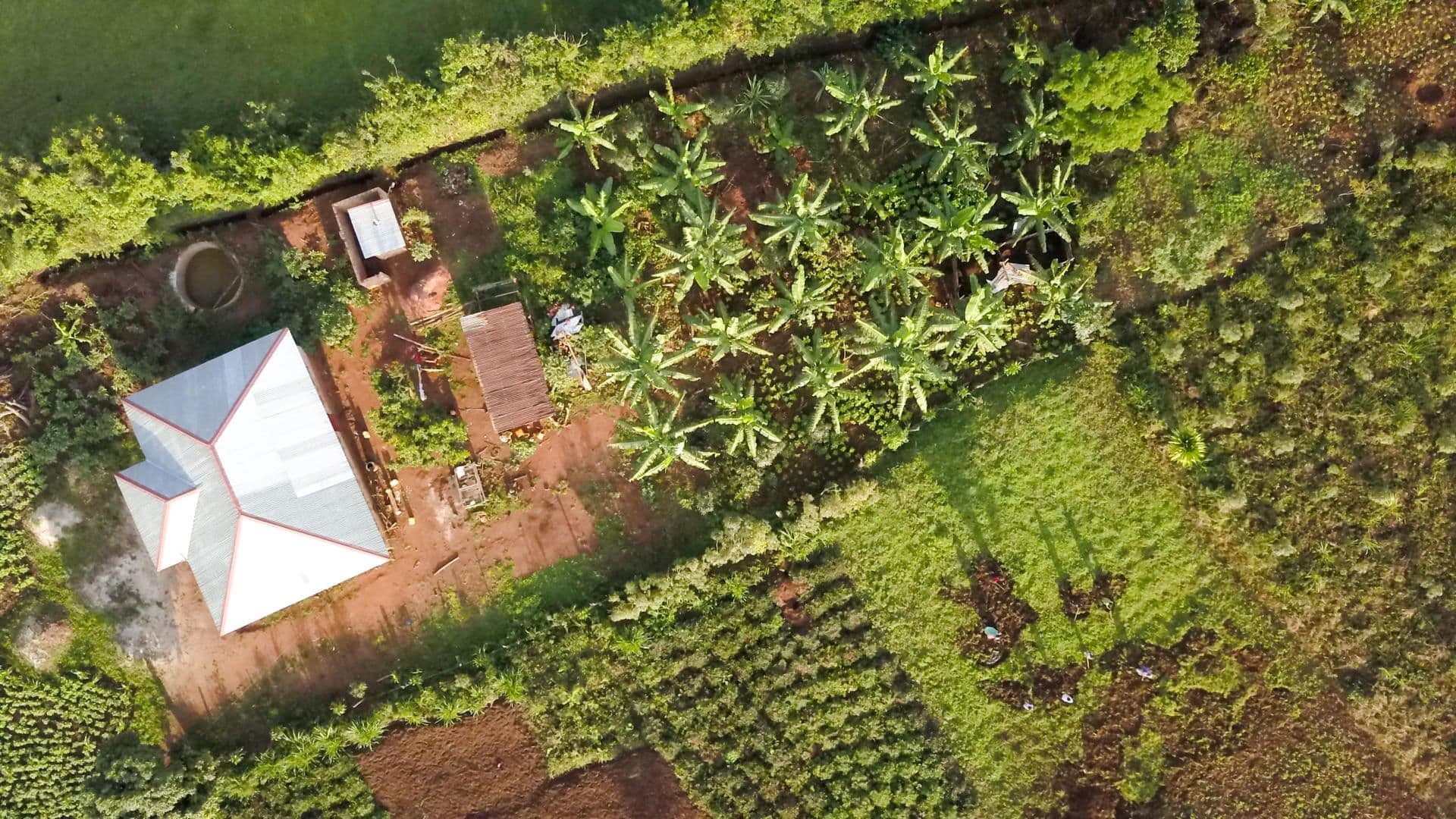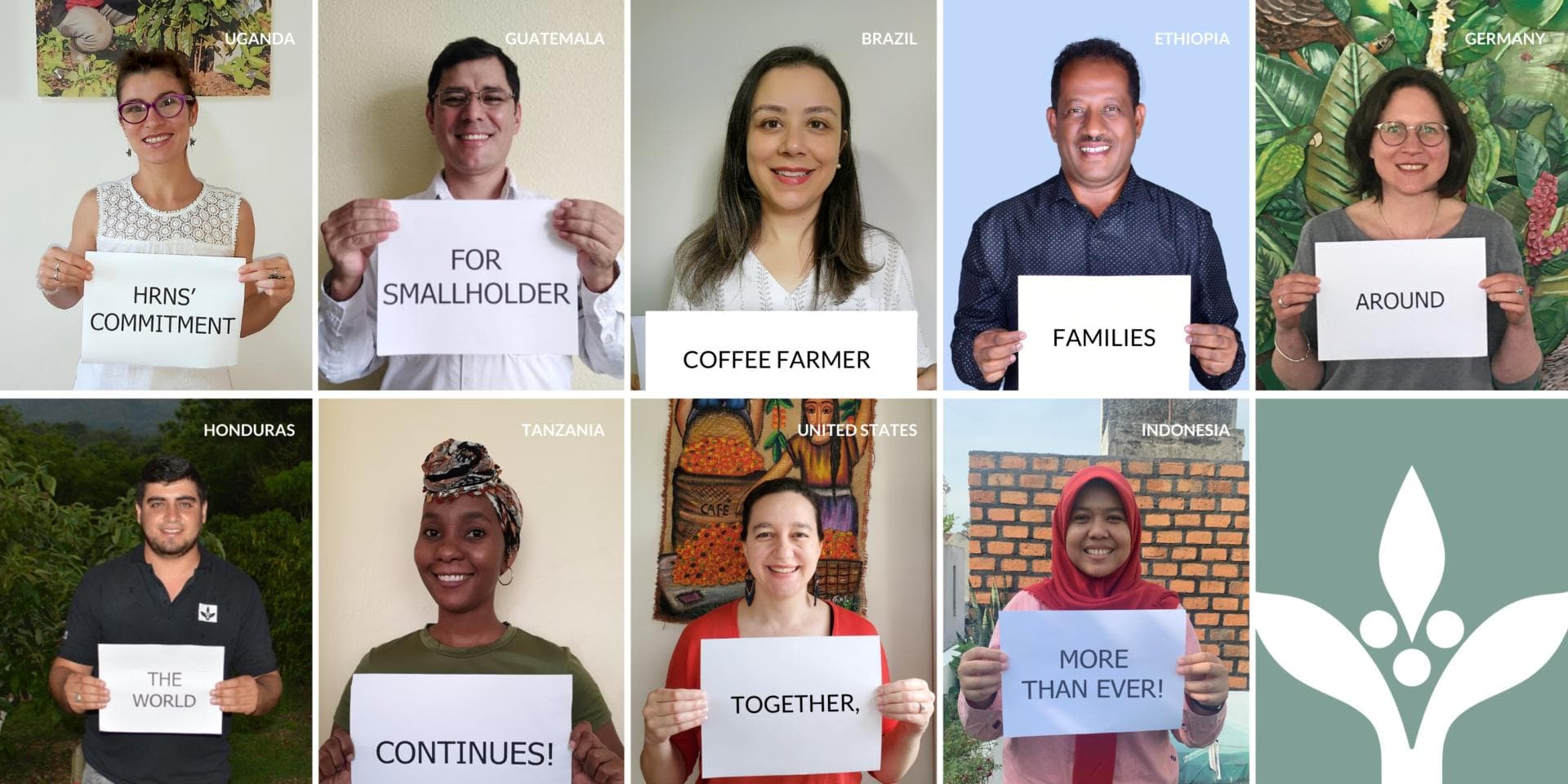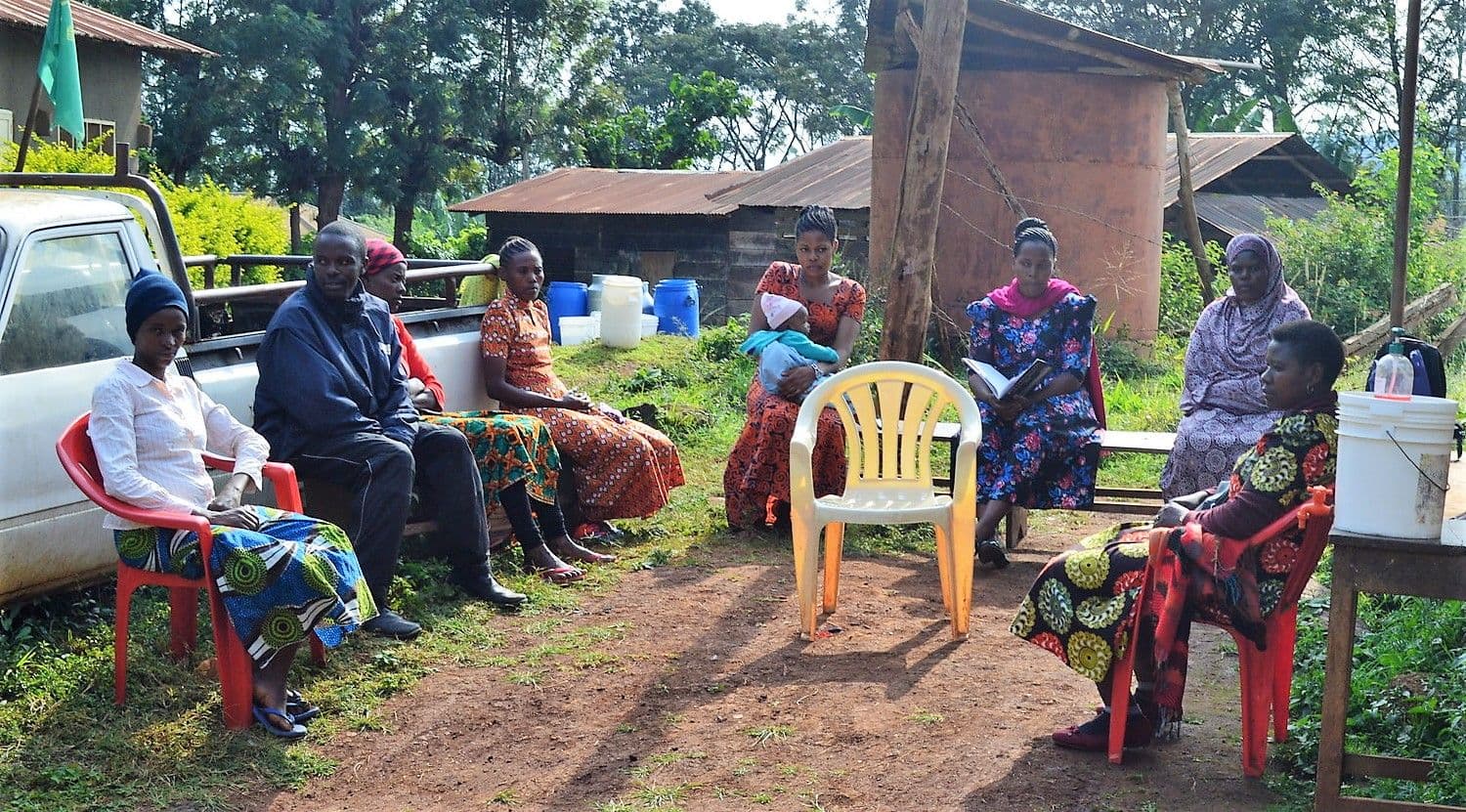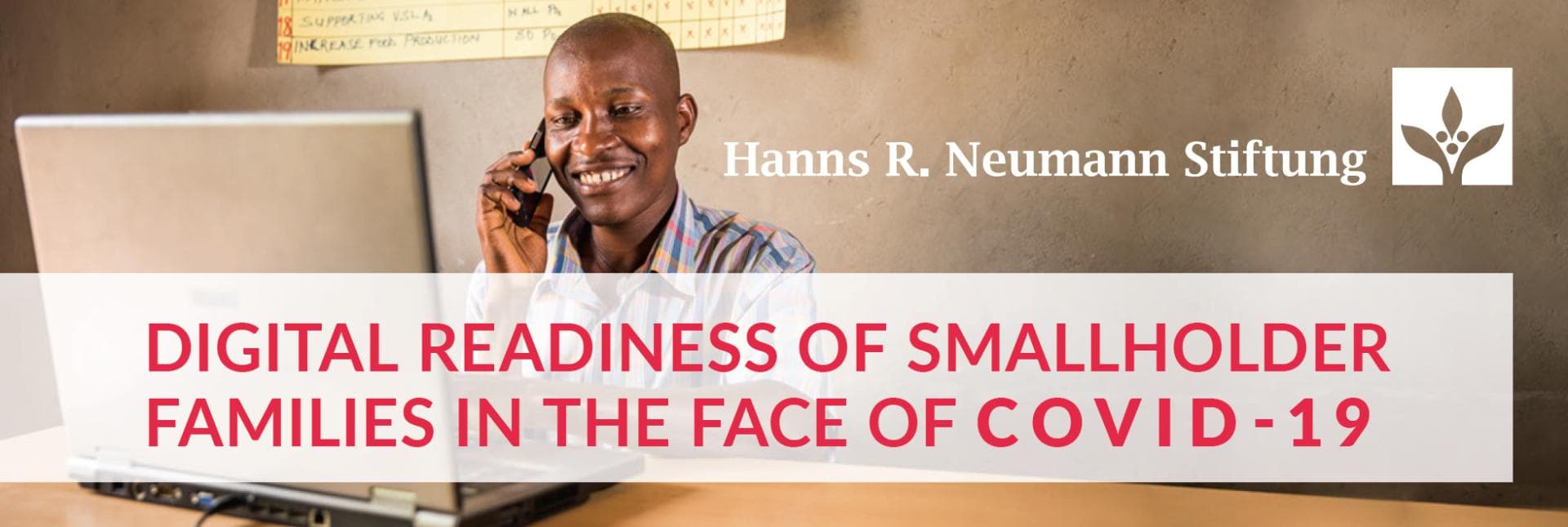Bringing support to smallholder families in Central America amid COVID-19
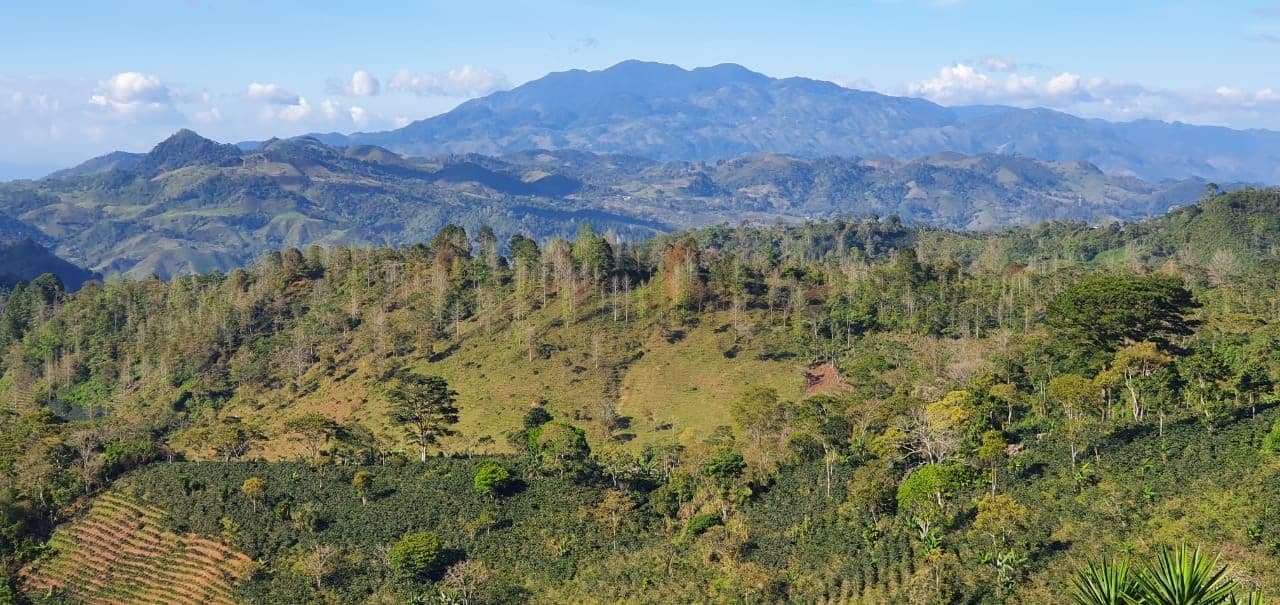
“The majority of our work with smallholder farming families usually takes place in coffee farms. In the wake of the recent COVID-19 outbreak in Central America and movement restrictions established by the government, we were initially concerned about no longer being able to reach smallholder families”, admits Mauro Garcia, Hanns R. Neumann Stiftung (HRNS) Co-Country Manager Guatemala. But he was proved wrong.
The global pandemic forced HRNS in Central America to discontinue field trainings together with smallholder coffee farmer families and farmer organizations. Under normal circumstances, HRNS agronomists are responsible for traveling miles across the rural mountains and vibrant highlands of Honduras and Guatemala to visit smallholder farming families. In the midst of steep mountain ranges, they visit small communities and hundreds of small coffee plots that make up entire coffee regions. During these trips they provide agronomic assistance, implement youth and gender trainings, supervise demonstration plots, and visit farmer organizations.
At HRNS we did our best in an early stage to inform communities about the Coronavirus. We distributed information on how to protect oneself.
With no transportation options and recent prohibitions of public gatherings, activities such as workshops, farmer trainings and farmer field schools are now suspended.“But we did not stop our work”, says Garcia. In response, HRNS immediately started utilizing online platforms. Personal meetings are now taking place via virtual platforms, extensionists are keeping close contact with farmers using SMS-Services and the global team is using digital solutions to plan and implement options for remote working. “We found out that farmer families have even more urgent questions that now come up with the new situation. And we do our best to answer them.” It is about maintaining coffee farms, planning and investing for the upcoming harvest and promoting household food security. All aspects that are accompanied with uncertainties caused by COVID-19.
International Knowledge Sharing and Activity Planning: Virtual Training
Days after the lockdown started, HRNS Central America set up an online community of practice so team members from Central and North America could connect. For two weeks, 32 team members met online to understand the current crisis of farming families in the region and make decisions. Several farmers and leaders of farmer organizations were also invited to voice their current concerns and immediate needs facing farming communities.
In addition, team members also took turns to address and expand on each of the four components HRNS works on (Family Business, Climate Change, Youth, and Farmer Organizations, with a strong focus on gender empowerment throughout all of these areas), to address specific actions that can be carried out to meet the current needs within each of these components.
HRNS colleagues from Central and North America meet online with smallholder farmers and leaders of farmer organizations
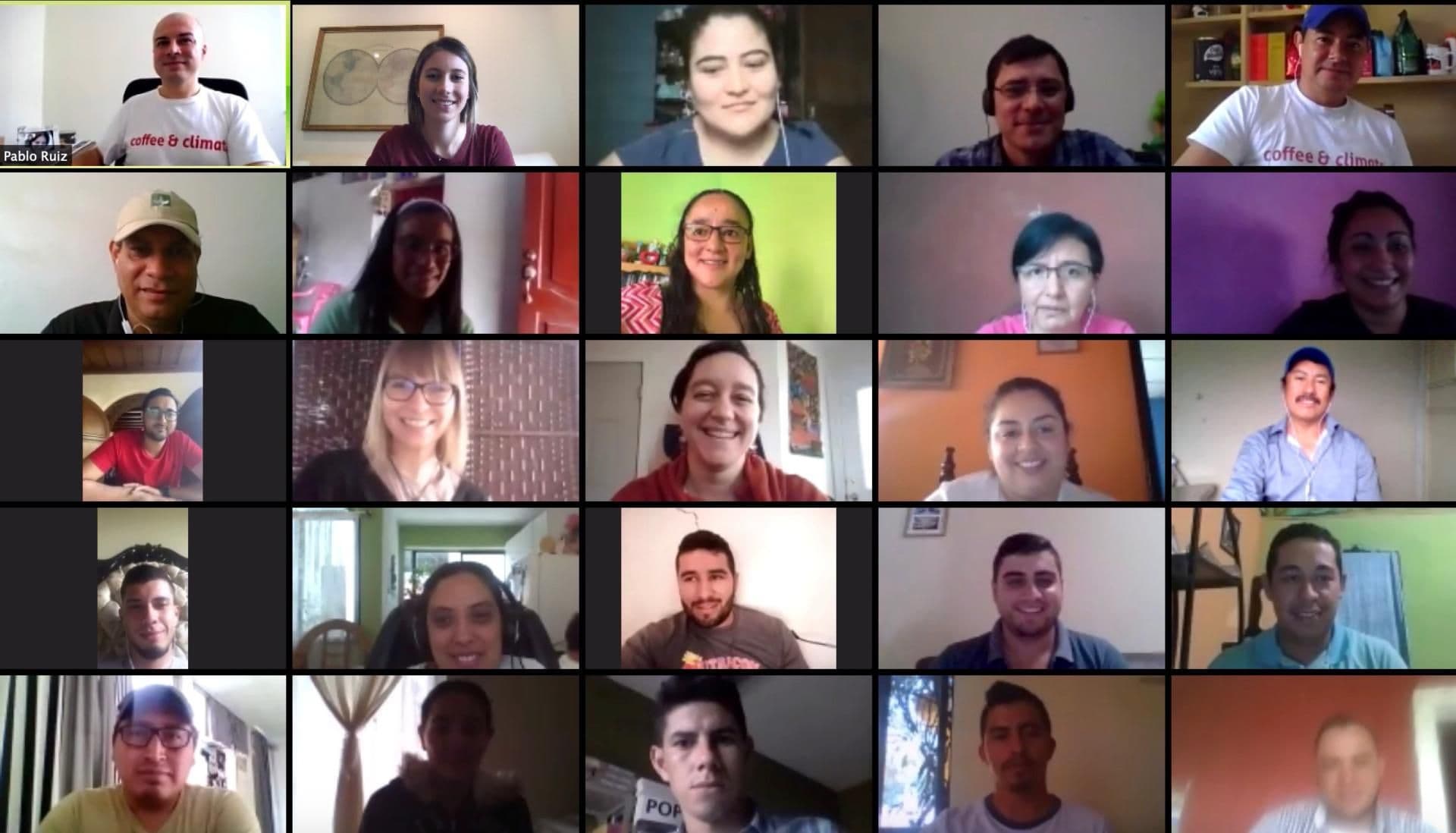
HRNS colleagues from Central and North America meet online with smallholder farmers and leaders of farmer organizations
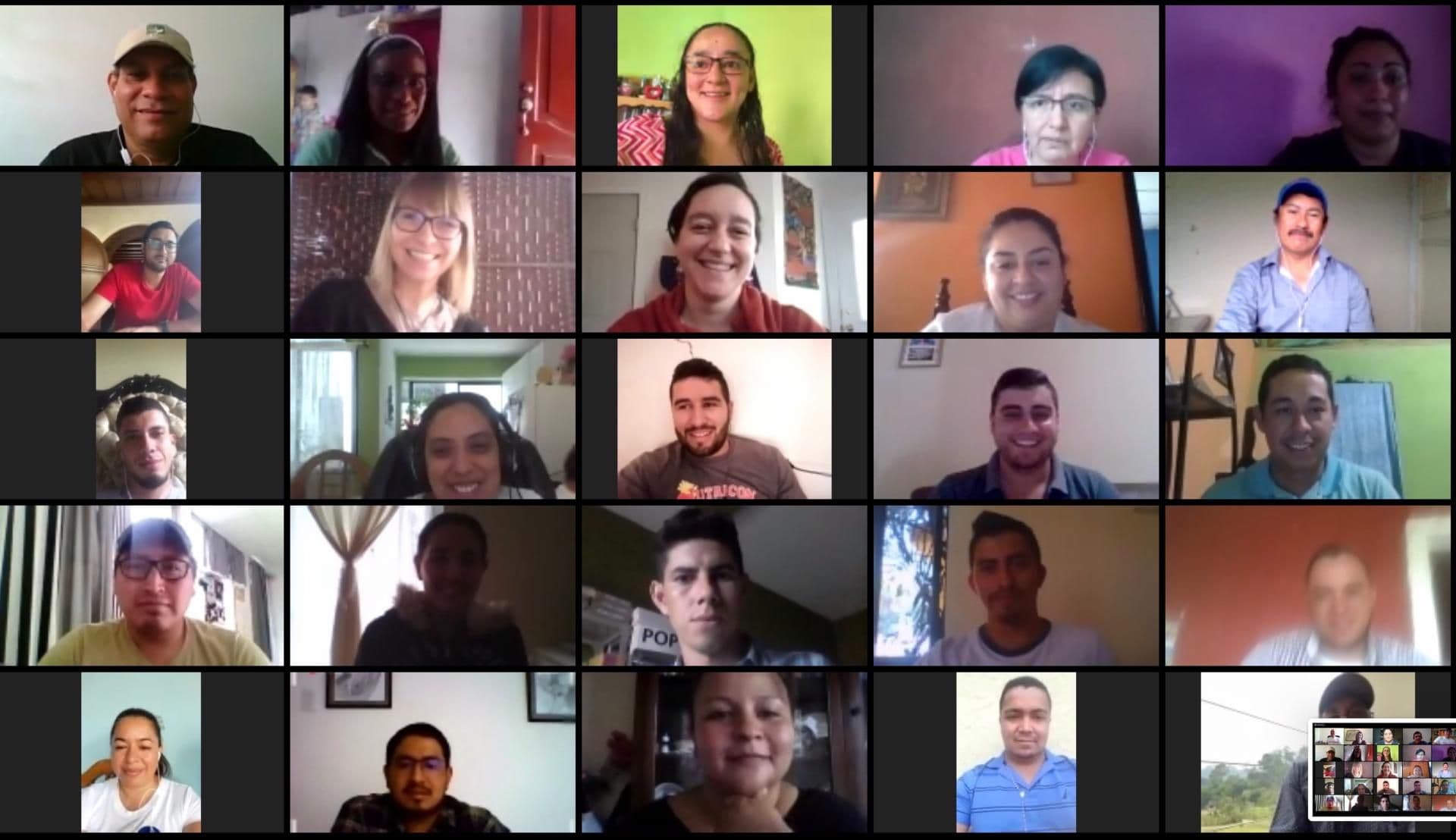
These webinars have allowed the team to enhance HRNS’ approach amid COVID-19 across regions. The HRNS team and farmers decided to create a baseline research study, conduct online virtual trainings, and take next steps in the development of a food security approach.
Coffee sustainability for youth uses online classrooms
Despite people being unable to physically meet, HRNS beneficiaries are still receiving technical trainings online, particularly youth in Honduras.
Together with the Honduran Coffee Institute (IHCAFE) and funding from the Global Environment Facility (GEF), HRNS is helping to carry out a 2-year university technical degree offering sustainable coffee diplomas to 100 young coffee farmers in Honduras. With a series of modules and trainings on business management and coffee sustainability, the degree aims to train youth to become community leaders in thriving coffee regions. Some of the courses explored include, finance, operations management, environmental protection, organizational development and climate change.
Thanks to virtual classes, youth have not lost the opportunity to learn! Dulce Villeda, a 24-year-old youth participant and 3rdgeneration coffee farmer explained, “The first week of the month is always my favorite! I quickly jump out of bed, and wait until the clock strikes 7:00 am to log into Zoom and start my online classes. I’m currently taking the climate change module. Last week, I received training on the implementation of cover crops and coffee nurseries.”
After a full week of classes, the program requires each youth participant to train and replicate all of the activities carried out throughout the week with at least 10 coffee producers from their community. Youth have the remaining three weeks of the month to replicate their learnings
“Yesterday, I finished implementing a coffee nursery together with a group of 15 smallholder farmers”, Villeda says. “I was quite concerned on how this would go since I had never received online training before. However, Gerson Lopez, the HRNS technician who is teaching this module, has been constantly calling and offering his support in case I had any questions or needed help guiding the farmers.”
The participating youth will still be able to receive their diploma despite the COVID-19 crisis. “We are committed to farming families, remain positive and focus on the opportunities that lay ahead”, says Garcia.
